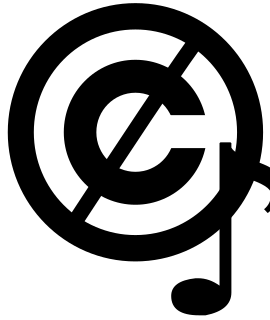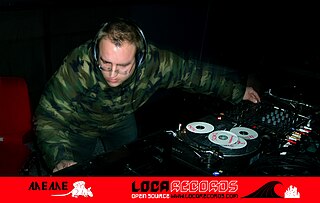Design Science License (DSL) is a copyleft license for any type of free content such as text, images, music. Unlike other open source licenses, the DSL was intended to be used on any type of copyrightable work, including documentation and source code. It was the first "generalized copyleft" license. The DSL was written by Michael Stutz.
Viral license is an alternative name for copyleft licenses, especially the GPL, that allows derivative works only when permissions are preserved in modified versions of the work. Copyleft licenses include several common open-source and free content licenses, such as the GNU General Public License (GPL) and the Creative Commons Attribution-Sharealike license.
Creative Commons (CC) is an American non-profit organization and international network devoted to educational access and expanding the range of creative works available for others to build upon legally and to share. The organization has released several copyright licenses, known as Creative Commons licenses, free of charge to the public. These licenses allow authors of creative works to communicate which rights they reserve and which rights they waive for the benefit of recipients or other creators. An easy-to-understand one-page explanation of rights, with associated visual symbols, explains the specifics of each Creative Commons license. Content owners still maintain their copyright, but Creative Commons licenses give standard releases that replace the individual negotiations for specific rights between copyright owner (licensor) and licensee, that are necessary under an "all rights reserved" copyright management.

Free music or libre music is music that, like free software, can freely be copied, distributed and modified for any purpose. Thus free music is either in the public domain or licensed under a free license by the artist or copyright holder themselves, often as a method of promotion. It does not mean that there should be no fee involved. The word free refers to freedom, not to price.
The Open Publication License (OPL) was published by the Open Content Project in 1999 as a public copyright license for documents. It superseded the Open Content License, which was published by the Open Content Project in 1998. Starting around 2002-2003, it began to be superseded, in turn, by the Creative Commons licenses.

A Creative Commons (CC) license is one of several public copyright licenses that enable the free distribution of an otherwise copyrighted "work". A CC license is used when an author wants to give other people the right to share, use, and build upon a work that the author has created. CC provides an author flexibility and protects the people who use or redistribute an author's work from concerns of copyright infringement as long as they abide by the conditions that are specified in the license by which the author distributes the work.

Loca Records is a British independent electronica and post rock record label based in Brighton, England. All the music, artwork and videos are released under copyleft licenses and distributed physically on vinyl, CD, and cassette. Inspired by the free software movement, Loca Records allows similar freedoms as the GNU General Public License on their releases, including copying, re-release, modification, and sampling, with the requirement that the new work uses the same license.

Share-alike (🄎) is a copyright licensing term, originally used by the Creative Commons project, to describe works or licenses that require copies or adaptations of the work to be released under the same or similar license as the original. Copyleft licenses are free content or free software licenses with a share-alike condition.
Open music is music that is shareable, available in "source code" form, allows derivative works and is free of cost for non-commercial use. It is the concept of "open source" computer software applied to music. However, the non-commercial stipulation associated with Open Music is incompatible with the first section of the Open Source Definition as well as the first freedom put forth in The Free Software Definition. Open Music is one of the general responses to the RIAA's and governmental actions against the music industry and its consumers.

The free-culture movement is a social movement that promotes the freedom to distribute and modify the creative works of others in the form of free content or open content without compensation to, or the consent of, the work's original creators, by using the Internet and other forms of media.

David Meme is primarily known as a producer and musician currently living and working in Brighton. As well as recording under the moniker Meme he is also one half of the electronic music duo Ward. He co-founded the open source label Loca Records, with graphic designer Marcus McCallion in 1999. Meme has been played by John Peel on his John Peel Show on BBC Radio 1 a number of times as both Meme and as another project, Ward. His latest project is ØxØ with Barnaby Thorn, released on Truant Recordings in 2019.
A permissive software license, sometimes also called BSD-like or BSD-style license, is a free-software license which instead of copyleft protections, carries only minimal restrictions on how the software can be used, modified, and redistributed, usually including a warranty disclaimer. Examples include the GNU All-permissive License, MIT License, BSD licenses, Apple Public Source License and Apache license. As of 2016, the most popular free-software license is the permissive MIT license.
OpenStax CNX, formerly called Connexions, is a global repository of educational content provided by volunteers. The open source platform is provided and maintained by OpenStax, which is based at Rice University. The collection is available free of charge, can be remixed and edited, and is available for download in various digital formats.
Open-source religions employ open-source methods for the sharing, construction, and adaptation of religious belief systems, content, and practice. In comparison to religions utilizing proprietary, authoritarian, hierarchical, and change-resistant structures, open-source religions emphasize sharing in a cultural Commons, participation, self-determination, decentralization, and evolution. They apply principles used in organizing communities developing open-source software for organizing group efforts innovating with human culture. New open-source religions may develop their rituals, praxes, or systems of beliefs through a continuous process of refinement and dialogue among participating practitioners. Organizers and participants often see themselves as part of a more generalized open-source and free-culture movement.
Patentleft is the practice of licensing patents for royalty-free use, on the condition that adopters license related improvements they develop under the same terms. Copyleft-style licensors seek "continuous growth of a universally accessible technology commons" from which they, and others, will benefit.

Free content, libre content, libre information, or free information, is any kind of functional work, work of art, or other creative content that meets the definition of a free cultural work.

Copyleft is the legal technique of granting certain freedoms over copies of copyrighted works with the requirement that the same rights be preserved in derivative works. In this sense, freedoms refers to the use of the work for any purpose, and the ability to modify, copy, share, and redistribute the work, with or without a fee. Licenses which implement copyleft can be used to maintain copyright conditions for works ranging from computer software, to documents, art, scientific discoveries and even certain patents.

The GNU Free Documentation License is a copyleft license for free documentation, designed by the Free Software Foundation (FSF) for the GNU Project. It is similar to the GNU General Public License, giving readers the rights to copy, redistribute, and modify a work and requires all copies and derivatives to be available under the same license. Copies may also be sold commercially, but, if produced in larger quantities, the original document or source code must be made available to the work's recipient.
A free license or open license is a license which allows others to reuse another creator’s work as they wish. Without a special license, these uses are normally prohibited by copyright, patent or commercial license. Most free licenses are worldwide, royalty-free, non-exclusive, and perpetual. Free licenses are often the basis of crowdsourcing and crowdfunding projects.
A public license or public copyright licenses is a license by which a copyright holder as licensor can grant additional copyright permissions to any and all persons in the general public as licensees. By applying a public license to a work, provided that the licensees obey the terms and conditions of the license, copyright holders give permission for others to copy or change their work in ways that would otherwise infringe copyright law.








